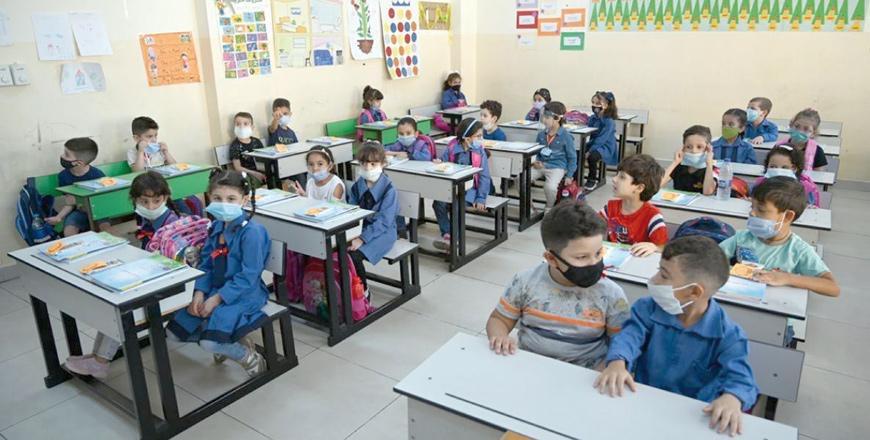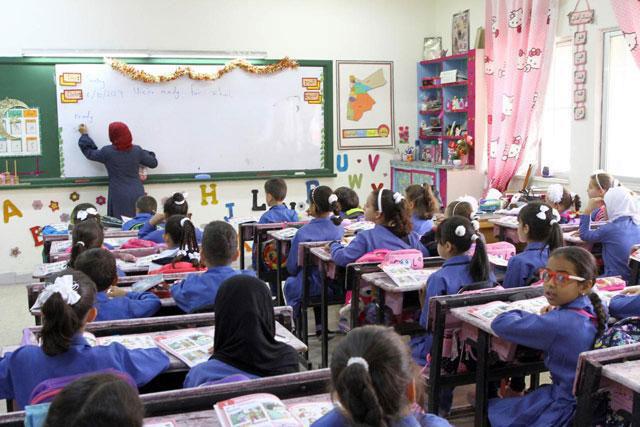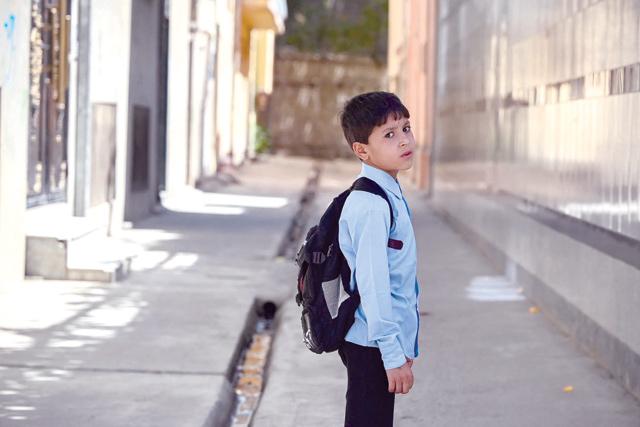You are here
Report sheds light on COVID-19 learning losses in MENA
By Batool Ghaith - Dec 15,2021 - Last updated at Dec 15,2021

AMMAN — Online teacher education has been used to reach 30,000 teachers, which is a first in Jordan, according to a joint report by the World Bank, UNICEF and UNESCO titled “COVID-19 Learning Losses: Rebuilding Quality Learning for All in the Middle East and North Africa” issued on Monday.
The unprecedented disruption caused by the pandemic could lead to children in the Middle East and North Africa (MENA) region to lose an additional year of learning outcomes, according to the report.
The loss is as a result of extended school closures despite the governments’ best efforts to provide remote learning, including through digital platforms, the report said.
The study noted that the duration of school closures on average in Jordan was 18 weeks, from March 2020 to June 2021. During this time, students continued learning remotely, through televised lessons and a national online learning platform.
“Over 90 per cent of students have access to the platform, but they may face challenges such as a lack of parental support or access to technology, while teachers had limited skills and resources to support online or blended learning,” the report said.
It noted that the figures are lower for vulnerable groups such as refugee children and those living in temporary settlements.
According to the report, by early December 2020, schools were fully or partially open in 15 countries, while the remaining were fully closed in only five countries, including Jordan.
The Ministry of Education in Jordan reacted quickly to minimise learning disruptions caused by school closures, collaborating with the Ministry of Digital Economy and Entrepreneurship, along with private sector entities including Edraak and Abwaab, the study said.
“The Ministry of Education developed remote learning platforms including Darsak [an e-learning portal with video courses for grades 1-12 in line with the national curriculum], in addition to televising and broadcasting lessons nationally,” the report said.
The report also noted that the ministry launched “Teachers”, a web page hosting professional development courses for teachers focusing on new technologies.
The share and number of students (pre-primary to upper secondary) potentially reached by digital and broadcast remote learning policies in Jordan is 55 million students (60 per cent), while 37 million students (40 per cent) could not be reached, the report showed.
According to the report, free data packages were provided in Jordan by UNICEF between March and November 2020, to vulnerable students in camps and informal tent settlements, as well as extended electricity hours in refugee camps to ensure children can watch television when the education ministry’s lessons are aired, the report stated.
The report highlighted that various catch-up modalities have been used to support refugee learners in MENA, including, hybrid learning in Jordan and a two-week catch-up programme which was offered in early September 2020.
Despite the closure of many universities, the impact of COVID-19 on university staff compared with the previous academic year was limited in most countries.
Only Jordan and Libya indicated a reduction in employment of up to 20 per cent and a general salary reduction, which included administrative staff in Jordan, according to the report.
The report also indicated that in Jordan, males have higher schooling deprivation than females, and the learning poverty rate for females is 48.2 per cent, while for males it is 55.3 per cent.
“COVID-19 exacerbated the challenges faced by school children across the Middle East and North Africa, creating a crisis within a crisis,” said Keiko Miwa, World Bank Regional Director for Human Development for the Middle East and North Africa, in a statement.
Ted Chaiban, UNICEF Regional Director for the Middle East and North Africa emphasised the importance of reopening schools. “It is so critical, not only for children’s education but also for their wellbeing. It is not enough to simply reopen classroom doors. School should be a safe place for children: To learn, play, and make friends. Those in charge should uphold their duties and responsibilities for the well-being, welfare, and safety of the children under their care during learning hours,” he said.
“It is imperative that we do not backslide, and instead we must work together to ensure that the realisation of our target for SDG 4 of the 2030 Agenda for Sustainable Development is met,” Costanza Farina, UNESCO Regional Director for Education in the Arab States, noted.
To tackle the learning crisis, countries in the region must first address the data gaps, by assessing students’ learning levels.
It is critical for policymakers, school administrators and teachers to have access to their students’ learning data disaggregated by sub-groups of students, so that they can target instruction and accelerate students’ learning recovery, the statement concluded.
Related Articles
AMMAN — Mounting calls for the return of in-class education in schools due to many students and parents’ dissatisfaction with online educati
AMMAN — School closures due to COVID-19 highlighted the digital divide within many countries around the world.
GENEVA — Schools closed due to the coronavirus pandemic must reopen as soon as possible, the United Nations insisted Tuesday, estimating tha













